 Borne by Jeff Vandermeer
Borne by Jeff Vandermeer
Genre: Sci-Fi / Post-Apocalyptic
Publisher: Fourth Estate, 15th June 2017
My Rating: ![]()
Synopsis: A ruined city of the future lives in fear of a despotic, gigantic flying bear, driven mad by the tortures inflicted on him by the Company, a mysterious biotech firm. A scavenger, Rachel, finds a creature entangled in his fur. She names it Borne.
At first, Borne looks like nothing at all― a green lump that might be a discard from the Company. But he reminds Rachel of her homeland, an island nation long lost to rising seas, and she prevents her lover, Wick, from rendering down Borne as raw genetic material for the special kind of drugs he sells.
But nothing is quite the way it seems: not the past, not the present, not the future. If Wick is hiding secrets, so is Rachel―and Borne most of all.

My Review
Thanks to my aunt who kindly lent me this ARC copy!
If you’re someone who needs answers immediately when reading a book or watching a film, someone who, when something unexplained happens, asks, “Why did that happen?” or “Why did they say that?” instead of waiting a few more chapters or 15 minutes more to find out, or someone who is not content with ever knowing the answers at all, then this is not the kind of book for you.
However, if you’re someone who likes a bit of ambiguity, who likes to be confused in a good, page-turning kind of way, then Borne is for you.
I read Jeff VanderMeer’s The Southern Reach Trilogy a few years ago and devoured each book one after the other. Usually, I leave a bit of a gap between books in a series if the series is already complete. However, I had so many questions, I needed to keep reading. That trilogy was fantastically creepy, suspenseful, horrifying and twisted. So that should give you a good idea of what Borne is like.
Borne, I would say, is the slightly calmer younger brother of The Southern Reach Trilogy. It’s still totally bizarre and full of some very creepy creations, but whereas that first trilogy was a full-throttle Sci-Fi Horror, Borne is more of just a Sci-Fi with a touch of Horror.
And immediately, the opening to Borne totally confused me. I had to go back and re-read sections because VanderMeer writes very intricately, yet with a throwaway attitude whereby he drops names of creations and places as if to say, “Keep up.” However, after the first twenty or so pages, I quickly settled into the rhythm and was captivated. VanderMeer has crafted a weird and wonderful story, with a bit more humour than his previous series, but with no less strangeness.
The story is narrated by Rachel, a young woman scavenging in a ruined city. She doesn’t quite know how she got there, but knows she travelled a dying Earth with her parents in search of salvation. Rachel lives with a man called Wick, who is a drug dealer of sorts, selling bits of ‘biotech’ to make a living. This crumbling city is haunted by a massive, murderous bear known as Mord. (Yes, you did read that right). One day, whilst searching Mord’s fur for bits to scavenge, Rachel finds a glowing blob that she takes home and calls Borne. She assumes it’s a strange plant, but it soon becomes apparent that Borne is much more.
Rachel herself is a great protagonist. Strong, hardened, but with a softness brought out in her by Borne. Borne, however, is the real star of the show, as the title would suggest. I won’t spoil what Borne is or much about him, but he’s a brilliant character. Innocent and funny, yet also deeply unnerving. He was crafted excellently and was easy to connect to, despite the fact he’s not even human.
Wick was an odd character, but I ended up also liking him. I would say Wick is the most complex; you never really know what he’s thinking. He’s very flawed, yet clearly caring. I liked the dynamic the three characters had: Rachel, Borne and Wick. Despite the setting being just downright odd, the characters felt entirely real and relatable.
And trust me, the setting is strange. It can be hard to imagine at times, but I find that VanderMeer manages to pull off describing these weird places. Whilst all my questions weren’t answered about the setting, I didn’t mind, and VanderMeer is able to write a setting and story shrouded in a bit of mystery, instead of feeling like he just couldn’t be bothered to tie up loose ends or have any reasoning behind particular aspects. The ending left me wanting to know more, but it didn’t feel incomplete. After The Southern Reach Trilogy, I have come to expect that VanderMeer likes to leave you guessing, and to leave parts open to interpretation. That works well for his novels, because any answers might actually ruin it in that they don’t feel right, or they feel anticlimactic.
For a while whilst reading, I compared Borne to The Southern Reach Trilogy and thought I liked the trilogy better as it was grittier and darker. However, thinking about it, Borne is totally its own entity and I shouldn’t compare it. Borne is a slightly ‘lighter’ read, and for that I found it had a little more meaning behind it rather than just being a brilliant idea. It’s a novel about loss and human nature, and can be quite moving at times. Not in the totally bleak and terrifying way of The Southern Reach Trilogy, but in a more bittersweet way.
If you haven’t tried any of VanderMeer’s books, I really recommend you do. If you’re not a Sci-Fi fan, and you’re scared easily, then you should probably skip them, but otherwise don’t be put off. They’re brilliantly imagined, entirely vivid and unique, and such gripping reads. Borne might be a softer introduction, but I honestly think VanderMeer has earned his place as one of my favourite authors, and I really look forward to more of his novels in future.

Have you read any of VanderMeer’s books? What did you think of them? Do you want to read Borne? Let me know in the comments below!
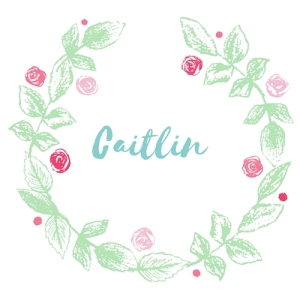

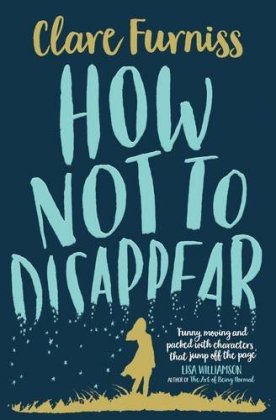 How Not To Disappear by Clare Furniss
How Not To Disappear by Clare Furniss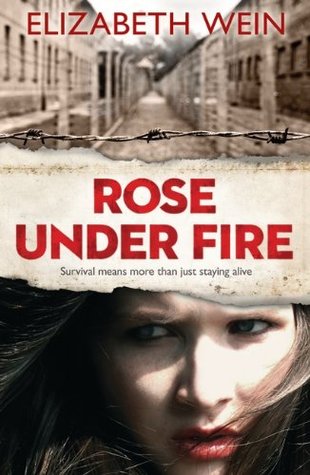 Rose Under Fire by Elizabeth Wein
Rose Under Fire by Elizabeth Wein



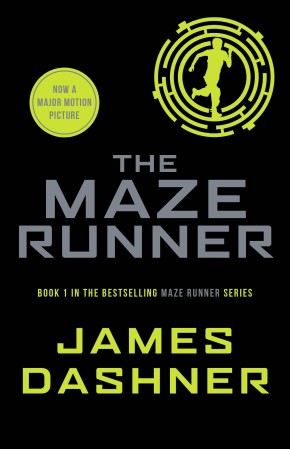 The Maze Runner by James Dashner
The Maze Runner by James Dashner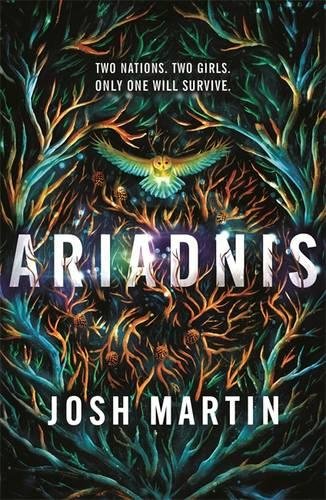 Ariadnis by Josh Martin
Ariadnis by Josh Martin


 The Memory Book by Lara Avery
The Memory Book by Lara Avery
 Morning Star by Pierce Brown
Morning Star by Pierce Brown